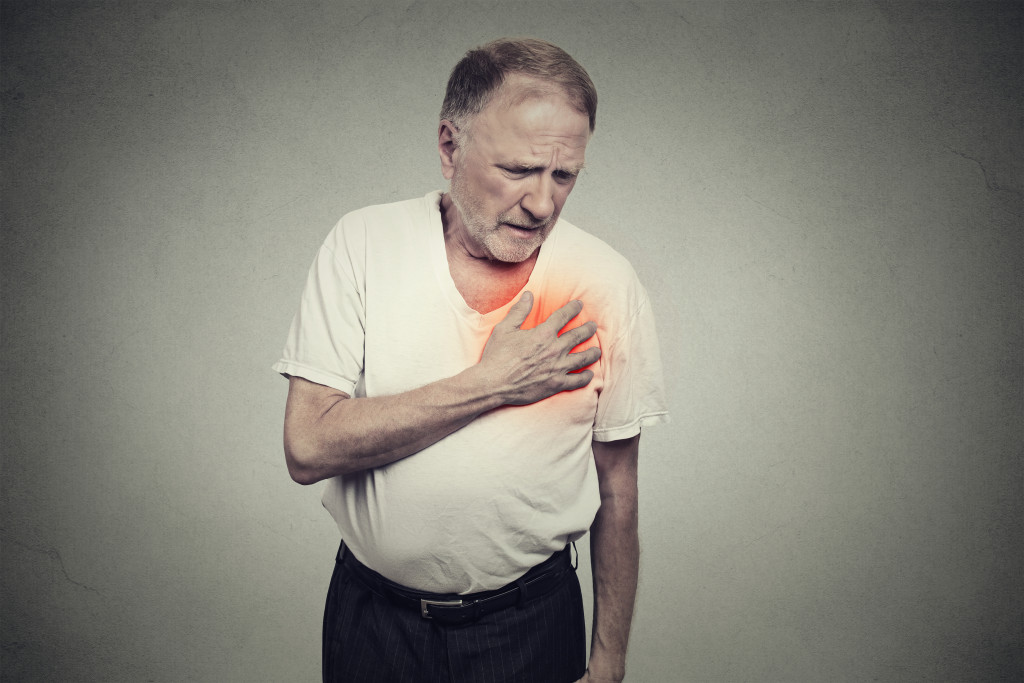Have you ever experienced a burning sensation in your chest or throat after eating? If so, you may have had heartburn. Heartburn is uncomfortable when the stomach acid travels up into the esophagus, causing a burning sensation and sometimes even chest pain. Here’s what you need to know about heartburn and how to deal with it or manage it in the future.
What You Need to Know About Heartburn
Have you ever felt burning pain in your chest or throat? This may be a symptom of heartburn. Heartburn is caused when the stomach acid flows back up into the esophagus, causing discomfort and sometimes even chest pain. It occurs more frequently after eating large meals or drinking alcohol, but it can also be brought on by stress or anxiety.
Risk Factors
Almost anybody can experience heartburn, but some risk factors can increase your chances of developing it. Here are some of them:
Eating Disorders
Certain eating disorders can increase your chances of heartburn. Among all the disorders, anorexia is the most likely to cause heartburn.
Anorexia is a disorder that causes people to restrict the amount of food they eat severely and involves an intense fear of gaining weight. This can lead to dehydration, electrolyte imbalances, and other issues that may cause heartburn. Purging is also an issue that can cause heartburn.
If you’re an anorexic individual, you must get treatment immediately if you don’t want your heartburn to worsen. You can visit an experienced anorexia therapist to help you out. They can provide treatment such as cognitive-behavioral therapy, individual or family counseling, and even medication to deal with this disorder.

Tobacco Use
Smoking cigarettes can increase the risk of heartburn by irritating the lining of the esophagus. It also weakens the lower esophageal sphincter (LES), a muscle that helps keep stomach acid from traveling up into the esophagus.
If you are a smoker, you must quit as soon as possible to reduce your risk of heartburn and other serious health issues. You can also talk to your doctor about medication or nicotine replacement therapies to help you quit smoking.
Alcohol Consumption
Drinking large amounts of alcohol can also increase the risk of heartburn. Alcoholic beverages can relax the LES, allowing stomach acid to travel into the esophagus, causing burning sensations and discomfort.
If you are a heavy drinker, then it’s vital that you cut back on your consumption or abstain altogether to reduce your risk of heartburn and other health issues.
Dietary Choices
What you eat plays a vital role in managing your heartburn risk. For example, foods with high-fat content, such as red meat, are harder to digest, which can cause stomach acids to back up into the esophagus, resulting in heartburn.
Other foods that may increase your risk of heartburn include sugary items like candy or soda, spicy foods, onions, garlic, caffeine, alcohol, acidic fruits like oranges or lemons, tomato-based products like ketchup or salsa, and fried foods. Eating large meals can also cause stomach acids to back up into the esophagus since there is not enough room for food to digest in the stomach properly.
Lifestyle Habits
In addition to dietary choices, certain lifestyle habits can also increase your risk of developing heartburn. Smoking weakens the muscles between the stomach and esophagus, which allows stomach acids to flow freely into the esophagus irritating. Drinking alcohol or coffee can also weaken these muscles leading to an increased risk of heartburn.
Stress is another factor contributing to acid reflux symptoms, so taking time out of your day for self-care is vital in reducing stress levels and preventing symptoms from occurring. Additionally, wearing tight clothing around your abdomen squeezes your organs together, increasing pressure on the lower esophageal sphincter (LES), allowing acid from the stomach enters the esophagus more frequently than usual.

Management of Heartburn
If you do experience heartburn, there are a few measures that can help manage it. Here are some tips:
- Avoid lying down after eating or drinking. Instead, stay upright for at least two hours after your meal to prevent the stomach acid from traveling into your esophagus.
- Don’t eat large meals, and try to avoid overeating. Eating smaller, more frequent meals can help prevent heartburn.
- Avoid foods that trigger your heartburn symptoms. Everyone is different, so determine which foods cause you the most discomfort when consumed.
- Try not to drink or smoke excessively, as these activities can relax the lower esophageal sphincter (LES) and allow stomach acid to enter your esophagus.
Heartburn is a common and uncomfortable symptom, but it doesn’t have to be a problem. Follow these tips and consult your doctor if heartburn persists for over two weeks or the symptoms are severe. With the right lifestyle changes and dietary modifications, you can reduce your risk of heartburn and lead a healthier life.

